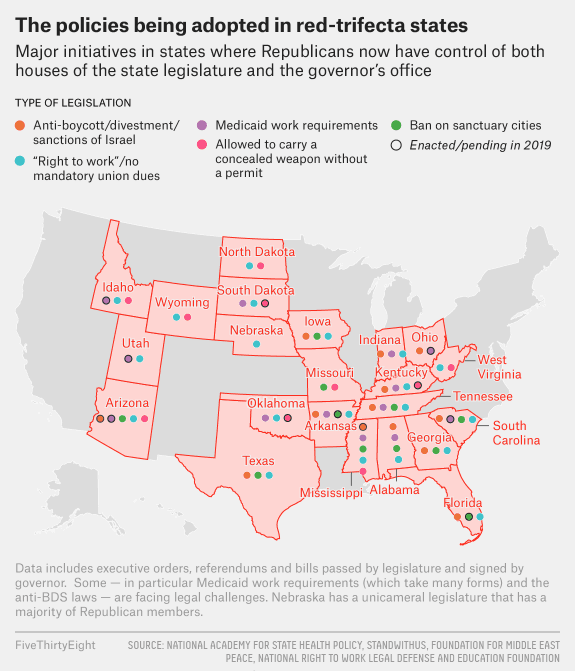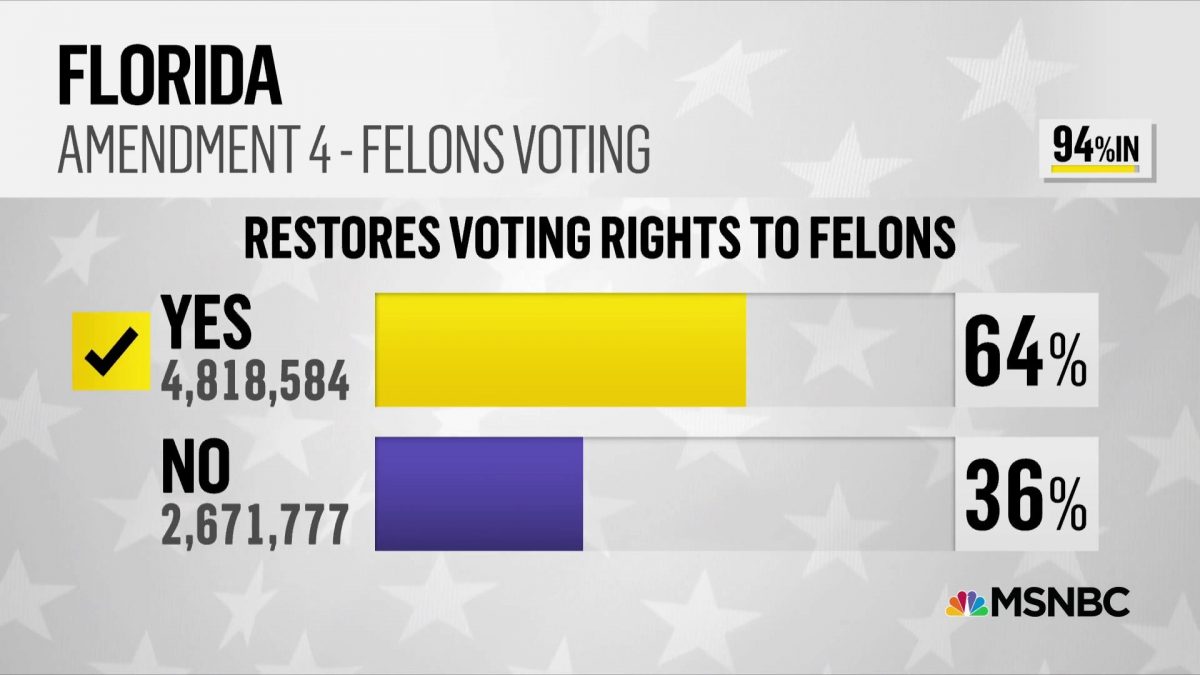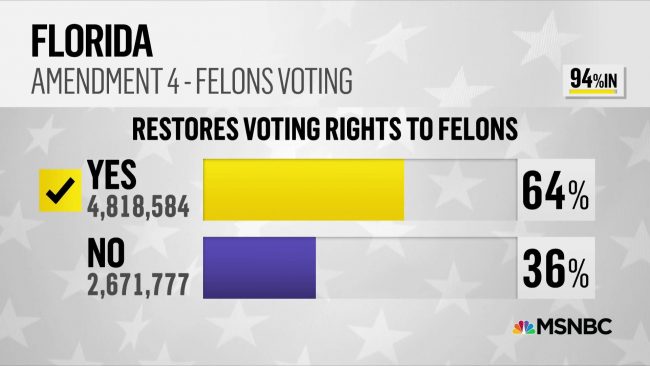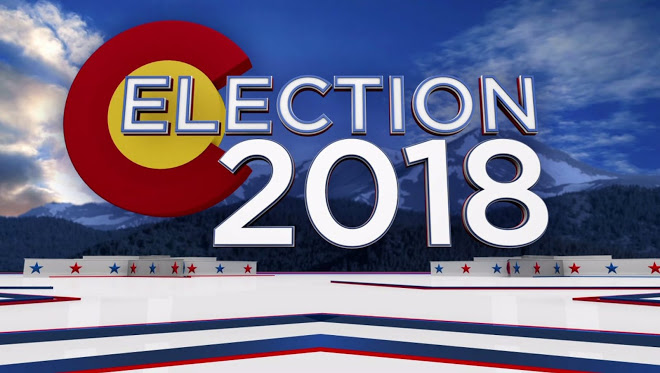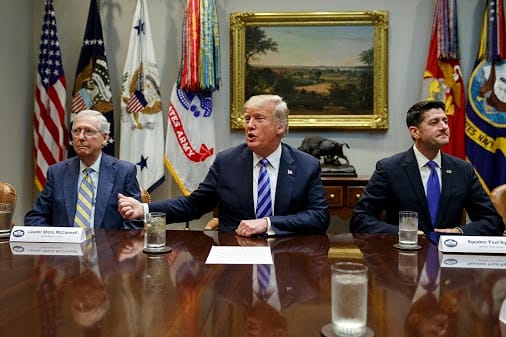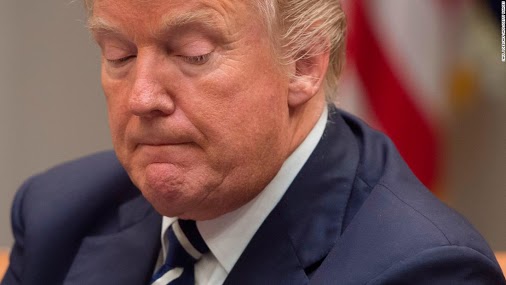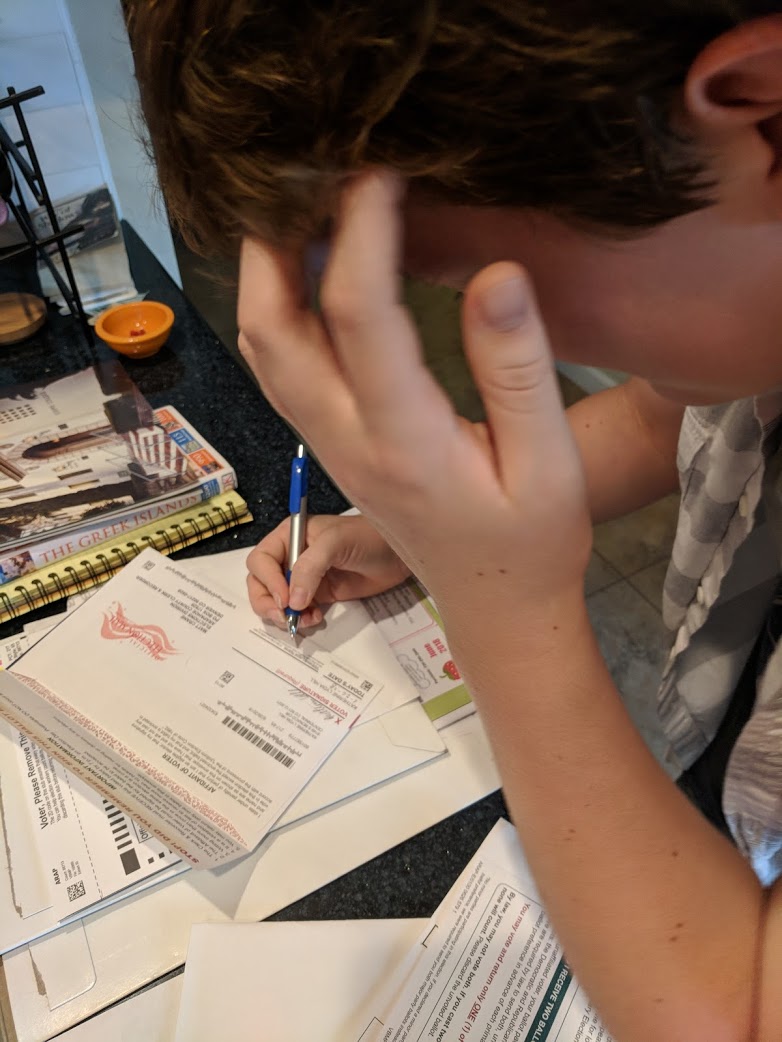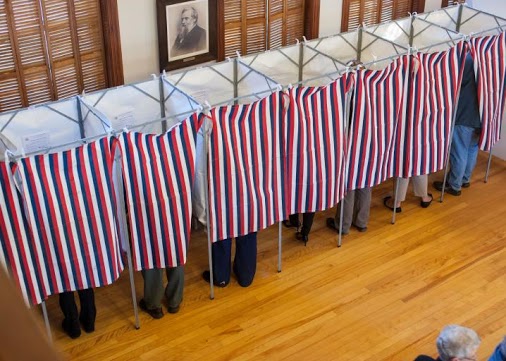I’ve been pondering this, and reading opinion (from right and left) since this extraordinary article came out. Some thoughts before something else pops up in the news cycle.
1. The GOP (mostly the punditry and, thus, Donald) have been paranoically railing against a “Deep State” of unaccountable Leftist bureaucrats resisting the President and defying our democracy. The irony appears to be the Deep State is Republican.
That irony is satisfying, but that doesn’t make the idea of government workers, even high administration officials, carrying out a soft coup — disobeying, forgetting to follow orders (and not reminding the President he gave them), all those other kinds of quiet sabotage — any more palatable. Sure, in a ticking bomb situation the first thing you do is try to defuse the bomb. But if you don’t let people know there was a bomb, and just keep defusing them as you see fit (and maybe dismantling some other clocks and unplugging other wires you think are better off disconnected), you’ve gone way beyond your remit.
The Deep State paranoia as it’s been raved about by Fox News talking heads has been goofy. But remember that “resistance” can be done against the “good guys” as well as the “bad guys,” and that setting a precedent of sabotaging a bad president’s actions as standard operating procedure means that a good president’s actions can be similarly sabotaged (for your own values of “good” and “bad”).
No organization can be effective or relied upon that way, and when that organization is the federal government in a representative democracy, the stakes become really high.
2. While there’s a certain amount of “the enemy of my enemy is my friend” going on here, the Left should not be treating this person and their cabal of like-minded folk as comrades. It’s not that the writer dislikes Trump’s policies — in fact, they brag about how nifty so many of them are — just that Trump himself is kind of a dumpster fire who keeps getting off-message and off-task in dangerous ways.
(This is akin — perhaps very closely akin — to the “Yeah, but if you get rid of Donald you end up with Pence” thing. The dismantling of the social safety net, civil liberties for other than white men, the environment, and every progressive reform since the turn of the previous century would continue, just without so much tweeting or worry about nuclear war.)
To take the metaphor even further, we cheer for the “Operation: Valkyrie” dudes (Tom Cruise!) who tried to assassinate Hitler late in the war. Yay for wanting to kill Hitler! But the conspirators weren’t lovers of freedom and democracy. They weren’t motivated by wanting to stop the Holocaust or free the Nazi conquests. They were mostly conservative elites who were were actually happy with the conquests that had taken place, and really only wanted to create a new authoritarian government without that lunatic in charge in order to force peace negotiations to hold onto those conquests before it was too late.
Nobody would have minded if they succeeded in their plot, but it wouldn’t have ushered in a brand new peaceful Reich of puppies and unicorns.
3. But, hey, these guys are keeping Trump from doing some really awful stuff, right? Which, ironically, even if so (and for their values of “really awful”), means that the case for actually getting rid of Trump — whether the extremes of impeachment or even of the 25th Amendment, or the traditional way of simply seizing power in Congress through the mid-terms — becomes weaker.
If what we’ve seen Trump try to do is with the most zany corners sanded off by the Inside Resistance, then they they are, in fact, covering up for Trump in the short run and making his position more secure.
4. I have seen it suggested that this is a defensive move — that when the walls come tumbling down one way or the other in the White House, this will be either a ticket for an individual or group of individuals to get away or be rehabilitated (“Hey, don’t prosecute me, I’m a member of the Inside Resistance!”), or else the foundation for saving the GOP itself (“Hey, don’t vote us out of office, we were resisting Trump from within!”). Neither is particularly admirable.
(In the short term, this latter may be a key to why this is coming out now. “Stick with the GOP, Midterm voters! We’ve got your back even if you don’t like Trump!” Um …)
5. By publishing this, the writer has given Trump justification for his narcissistic paranoia. They really are all out to get him! That then allows him to purge folk he’s been waving on, and, more importantly, reject future suggestions of moderation or course deviation.
Is that a good thing? It’s kind of the reverse of Number 3, but it’s also completely predictable, so why do it? What’s the actual purpose for this op-ed and its timing?
6. I’ve seen a lot of folk say that, rather than Quiet Resistance (sabotage), the writer and their cabal of like-minded friends would be better off simply resigning, publicly so. “But then we couldn’t try to stop him from within!” Yeah, but as has been noted, that’s not necessarily working real well, and has its own drawbacks.
Resign publicly, and then, if you are real heroes, spill the beans. Here’s what I saw. Here’s what he planned. Here’s what he said. That has more of an effect, adding to the chorus of other who have done the same, than quiet reassurances that you’re hiding deep within, protecting us from the stuff you say is too extreme for you.
7. The $64K question is, who’s the writer (and their friends)? That’s the foundation for really judging this, because it would show the motivations in what they’ve talked about, the timing of doing it, and what they’ve actually revealed. There’s a lot we can’t truly parse out until we know that part of the story.
Until then all we have are vague confirmations from an anonymous (but pretty certainly accurately self-described high administration official) source that, yeah, the zaniness we’ve heard about from past journalistic and resigned official tell-alls is actually pretty much true (again, something to remember come November), and that there’s a set of people who are (they say) keeping it from being worse than it is, whether they were elected to do so or not.
We also have a President going crazy over the matter and demanding the NYT turn over their source, which, of course, they should not do (regardless of my feelings about them), and that will be of interest to watch, too.

Opinion | I Am Part of the Resistance Inside the Trump Administration
I work for the president but like-minded colleagues and I have vowed to thwart parts of his agenda and his worst inclinations.
Original Post
